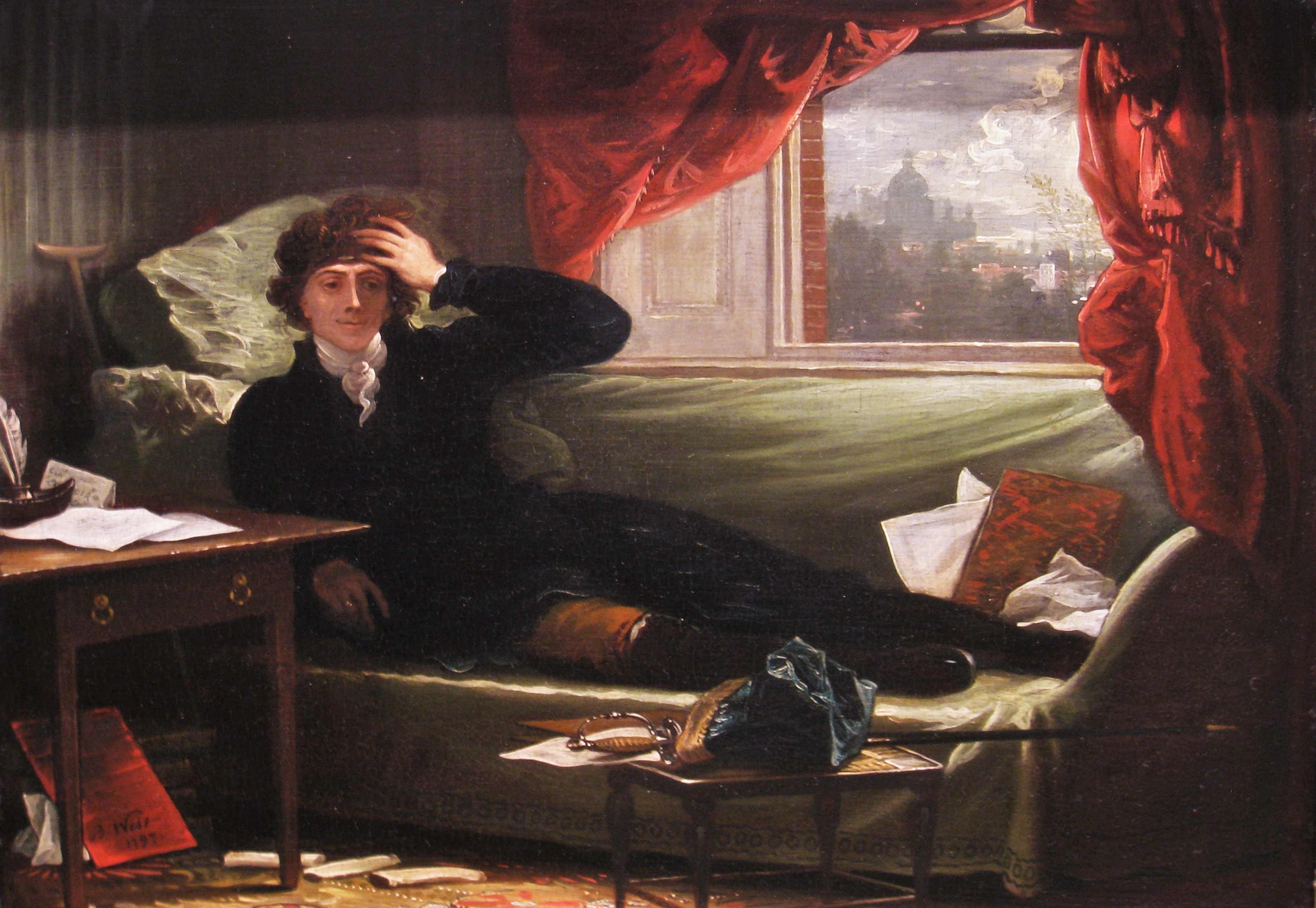Suppose you know a man who doesn’t have a paying job (and isn’t looking for one), who gets up late, goes to bed early, and often spends a good deal of his waking hours lying on the couch; a man who doesn’t always get his share of the household work done on time; a man who frequently isn’t available if you need a volunteer.
What would you think of him?
Here’s the thing: that man is my husband (aka The Caped Gooseberry). And I think very highly of him. Because he isn’t lazy; he has Chronic Fatigue Syndrome (CFS).
And unfortunately, a lot of people seem to think that unless you’re visibly ill, you must be a hypochondriac, a malingerer, or just plain lazy. “It’s all in your head.” Well, so is a brain tumour, and who would tell someone with cancer that they just need to pull themselves together?
There are two particularly frustrating reactions to my husband’s illness. One is the suggestion that he just needs to try [insert pet vitamin/mineral/other here] or getting more exercise, or self-hypnosis, or… As though being cripplingly unwell for years at a time only happened to people who didn’t think to try a herbal remedy, or eat lots of oranges.
The second is the suggestion that he’s only ill – or pretending to be – because he prefers it to work. Which isn’t true. My husband does a larger share of the housework than a great many able-bodied men (although, to be scrupulously fair, they’re more likely to spend hours each day at a paying job). He’s worked when his health has allowed it, to the extent that he could, and he gets very frustrated when his energy levels force him to stop work.
He could just go on a benefit and lie in bed all day watching TV, but he doesn’t. He doesn’t even spend all day in his jammies (which, I must admit, I would be very tempted to do in his place). He dresses well, even if that’s the only thing he has the energy to do that day. And when he can, he works – on programming, audio-book narration, or other projects – even though the work is unpaid.
The thing is, the Caped Gooseberry doesn’t look sick, apart from an occasional tendency to resemble a tomb effigy when at rest.
So it’s easy for people to assume that he isn’t really that unwell. Easy to assume that if they see him out doing the grocery shopping or going to church, he must be all right. They don’t see the rest of the day spent lying down to make up for it. They don’t see him when he’s too tired to leave the house, or too tired to even sit at the table and chew.
In some ways, it’s an invisible disorder, because not only are the symptoms frequently not visible, the sufferers often ‘disappear’ as well.
But Chronic Fatigue Syndrome (also known as myalgic encephalomyelits/ME and chronic fatigue immune dysfunction syndrome/CFIDS) is a very real illness.
According to Wikipedia, symptoms may include “malaise after exertion; unrefreshing sleep, widespread muscle and joint pain, sore throat, headaches of a type not previously experienced, cognitive difficulties, chronic and severe mental and physical exhaustion…. muscle weakness, increased sensitivity to light, sounds and smells, orthostatic intolerance, digestive disturbances, depression, painful and often slightly swollen lymph nodes, cardiac and respiratory problems.”
And then, with classic understatement, the article adds “Quality of life of persons with CFS can be extremely compromised.”
And there are few things worse than having your life maimed by illness, only for people to treat you as though you’re a slacker, a bludger, or just hopelessly inept. As though you aren’t really suffering, and if you are, it’s your fault.
Of course, most people are too polite to suggest to the Caped Gooseberry that he just needs to pull himself together and get on with it. So they suggest it to me, instead. Because there’s nothing offensive in telling a woman that you think her husband’s a lazy slacker who pretends to be sick to avoid having to get a job like a real man.
Seventeen million people are said to have Chronic Fatigue Syndrome. That’s a lot of people being looked down on by people who don’t know their circumstances, and, sadly, by many of those who do.
So please, before we judge the person doing the grocery shopping in their pyjamas, or the person whose house or yard isn’t up to neighbourhood standards, please, let’s remember that we don’t know what else they’re going through, and they don’t need the weight of our condemnation added to the burdens they’re already bearing.








